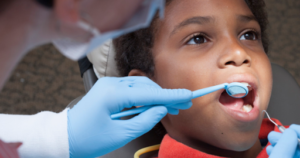Everything You Need To Know About Wisdom Teeth Removal

Wisdom Teeth Removal
The removal of wisdom teeth is something most young adults will begin to dread. We are told that it is a horrible procedure filled with pain and long periods of recovery where we cannot even eat solid foods. Some of this is over exaggeration and myth but some of it rings true. There is pain involved in almost every medical procedure out there, it does not matter if it is mandatory or not. However, while people are more than happy to share conjecture and rumour as well as tales about the pain, no one really shares information on the procedure itself or what to expect other than discomfort and pain. These horror stories are not helpful for those who are about to go through the procedure. It can cause unnecessary anxiety to an already daunting experience and it can cause some people to put off signing up for the procedure, which can be detrimental for the mouth health and hygiene. This article aims to expel all of the horror stories associated with wisdom teeth removal and to provide information on what to expect during the procedure and after, to help those about to go through the procedure to feel better about the situation.
So what do I do before surgery?
You will first have an assessment appointment with the oral hygienist or specialist oral surgeon. They will talk you through the procedure and tell you what to expect before during and after the whole wisdom teeth removal process. During this assessment appointment, it is always recommended that you ask several questions and queries yourself, such as any health problems or concerns you may have that might impede the procedure as well as any drugs that you take regularly or on a daily basis – remember the surgeon is not there to judge you, only to help guide you through the procedure at hand, nothing else will be of relevance to them.
So what happens during surgery then?
Depending on the state of your wisdom teeth and the placement, you may or may not be asleep – put under local anaesthetic – or your mouth will be numbed. Either way, whether you are awake or not, you will not feel any pain during the actual removal of your wisdom teeth. You will not be in the oral surgeon’s chair for long, most of the time the procedure will take no more than forty five minutes, sometimes less depending on the site and the state of your wisdom teeth placement.
What happens after the operation?
People react differently to anaesthetic, so there is no telling how you will respond, you may be emotional or highly strung, there is no way to tell. Most people actually have little pain after their surgery, the pain is sometimes there but manageable thanks to the drugs that the oral surgeon will provide you. There will however be swelling for the next few days afterward or maybe even the next few weeks.






